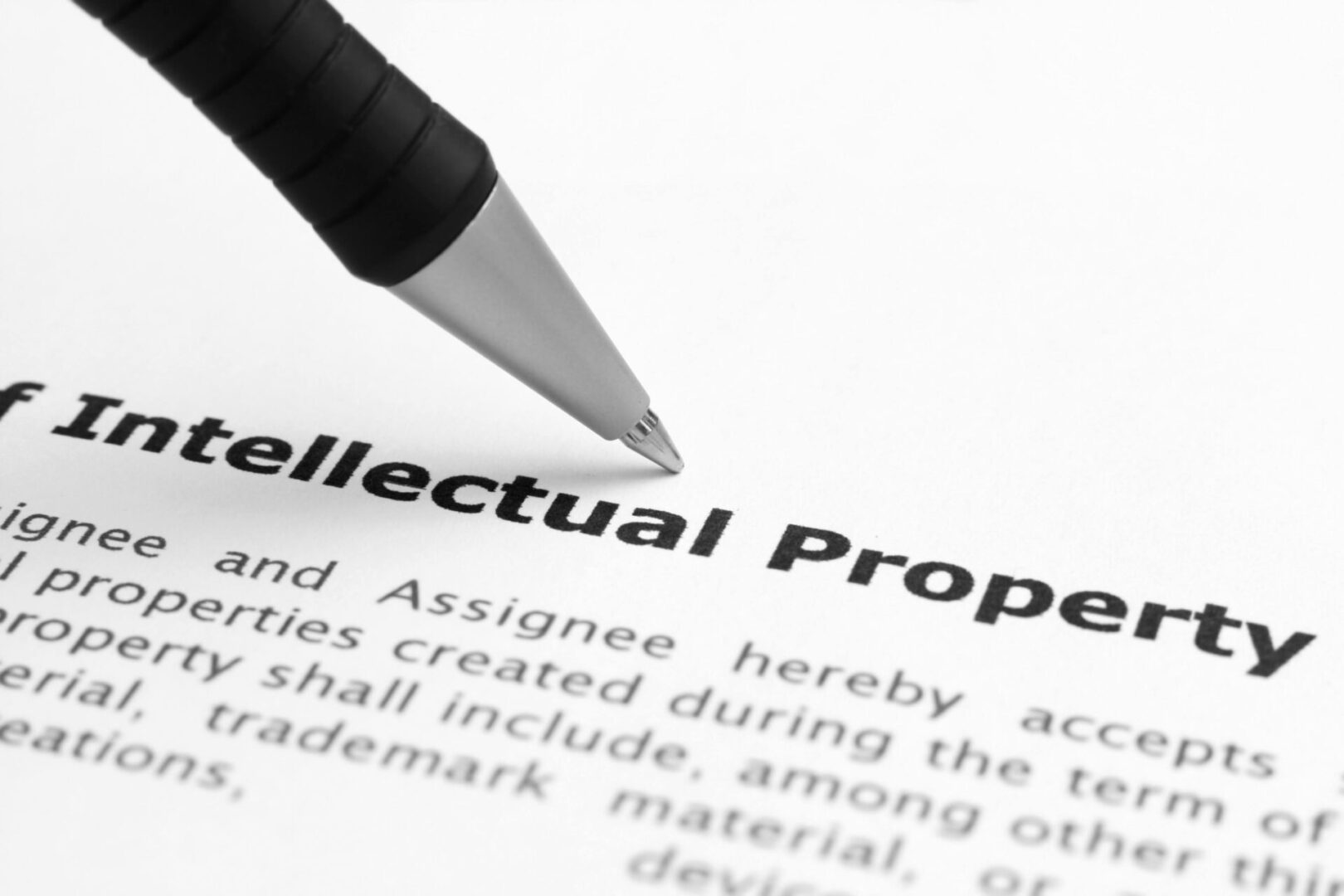Uncategorized
In today’s dynamic work environment, employers must master a complex network of labor regulations and legal precedents to maintain a fair and compliant workplace. With evolving legislation and shifting employee expectations, navigating the legal maze of employer labor issues has become an ongoing challenge. This blog will explore key facets of employer labor law, outline common disputes, and provide strategies for creating a proactive culture of compliance.
Understanding the Employer Labor Landscape
Navigating legal labor issues starts with a deep understanding of the framework in which businesses operate. Employers face an intricate system of rules that govern everything from hiring practices to workplace conduct. Familiarity with this legal landscape is crucial for ensuring that policies and procedures not only protect the organization but also foster an environment of fairness and respect.
Employment Contracts and Work Policies
Employment contracts and workplace policies are the cornerstones of any organization’s labor framework. These contracts establish the expectations between the employer and employee, while the policies communicate the day-to-day standards of behavior and performance. Firmly establishing these documents helps mitigate potential disputes before they escalate. Ensuring that every employee understands their rights and responsibilities is the first step in building a legally sound work environment.
Compliance and Constant Updates
The regulatory environment is ever-changing, and what was compliant a few years ago may no longer meet current standards. Staying informed about the latest legislative updates and judicial decisions is critical. Employers must invest in continuous learning and regularly review their policies to ensure compliance. Small adjustments in how policies are written or enforced can make a significant difference in avoiding legal pitfalls and maintaining a culture of fairness.
The Legal Maze: Key Challenges
Even with robust policies, employers can encounter numerous legal challenges. By understanding the most common labor issues, organizations can act swiftly and decisively to resolve disputes and avoid litigation.
Disputes Over Contractual Obligations
One prevalent challenge involves disputes over employment contracts. These disputes can arise from disagreements about terms, benefits, or conditions of employment. Such conflicts often create a ripple effect, affecting trust and morale among team members. Employers must strive to draft clear and precise contracts that reflect an understanding between all parties involved.
Allegations of Workplace Discrimination
Workplace discrimination is another critical area where legal challenges frequently emerge. Even unintentional oversights in policy or practice can lead to claims of bias or unfair treatment. It is vital for employers to establish robust protocols to investigate claims promptly and to ensure that the work environment is inclusive and equitable from the outset. Creating structured reporting procedures and ensuring transparent enforcement helps in mitigating these issues.
Wage and Hour Disagreements
Issues concerning wages, overtime, and the appropriate categorization of employees can also become contentious. Confusion or disagreements surrounding compensation structures might lead to disputes that, if unresolved, may escalate into more formal legal claims. Employers must ensure that compensation policies are transparent and consistently applied across the board.
Strategic Approaches to Mitigation
Addressing potential legal pitfalls requires a proactive and strategic approach. Implementing preventative measures can reduce the likelihood of disputes and demonstrate an employer’s commitment to fair labor practices.
Proactive Policy Development and Employee Training
A forward-thinking strategy begins with comprehensive policy development. When policies are created with diligence and communicated clearly, they serve as a solid foundation for operations. Regular training sessions allow employees and management alike to stay informed about the latest legal requirements and workplace best practices. Such training ensures that the organization’s values are reflected in everyday operations, thereby minimizing misinterpretations that may lead to legal issues.
Clear Communication Channels
Transparency in communication can help prevent misunderstandings before they escalate into legal conflicts. Employers should create channels where employees feel safe discussing concerns or reporting issues. Establishing open-door policies and ensuring respectful dialogue encourages early resolution of potential disputes. By nipping issues in the bud, an organization can maintain a positive work environment and avoid costly litigation.
Mediation and Alternative Dispute Resolution
When conflicts do arise, avenues such as mediation and alternative dispute resolution (ADR) often prove invaluable. These methods provide a framework for a balanced resolution without the need for extended legal battles. Encouraging a culture where disputes are handled internally using ADR mechanisms can lead to quicker, less adversarial outcomes.
Leveraging Legal Counsel and Expertise
Even with the best preventative strategies, certain situations call for the expertise of legal counsel. Partnering with professionals who specialize in labor law can provide guidance and reassurance during challenging times.
Engaging with Experienced Legal Advisors
Working with experienced legal advisors can help navigate complex situations that may arise from contractual disputes, discrimination claims, or wage controversies. These experts bring a nuanced understanding of the evolving legal landscape and can offer tailored strategies that align with the organization’s values and objectives. Engaging such counsel early in potentially contentious situations helps resolve issues more effectively and protects the organization’s reputation.
Building a Culture of Compliance
Ultimately, the goal is to build an organizational culture where compliance is ingrained in every decision. A proactive approach to legal challenges emphasizes not just reacting to issues as they arise but embedding legal and ethical considerations into the fabric of the organization’s operations. This cultural shift ensures that both employees and management operate with integrity, reducing the likelihood of disputes and fostering long-term success.
Moving Forward with Confidence
Navigating the legal maze of employer labor issues is not a one-time task but a continuous journey. By comprehending the legal landscape, identifying common pitfalls, and adopting proactive strategies, employers can build a resilient framework that safeguards their operations.
Contact our team today to learn more.
Facing a wage and hour class action lawsuit in the intricate legal landscape of Los Angeles, California, can be a daunting and high-stakes challenge for any employer. The potential for significant financial liability, reputational damage, and operational disruption underscores the critical importance of securing experienced and knowledgeable legal counsel. Engaging an employment class action defense attorney early in the process is paramount to navigating the complexities of such litigation effectively. These specialized attorneys possess the nuanced understanding of California’s stringent wage and hour laws, the procedural intricacies of class action lawsuits, and the strategic acumen necessary to protect your business interests in the Los Angeles legal environment.
(more…)Workplace discrimination claims pose significant risks to businesses, often escalating into costly class action lawsuits that threaten both financial stability and reputation. Employers must prioritize proactive strategies and develop strong legal defense mechanisms to guard against these threats. Understanding the challenges associated with such claims and taking deliberate action can be the difference between protecting an organization and facing severe legal consequences.
Recognizing the Risks Associated With Discrimination Claims
Discrimination allegations can arise from perceived unfair treatment tied to race, gender, religion, age, disability, or other protected characteristics under federal and state laws. Class action claims amplify these disputes, often by implicating systemic issues within an organization. For employers, the stakes in class actions are exceptionally high, with potential liability extending to significant financial damages, operational disruptions, and public reputational harm.
Employers need to be acutely aware of compliance obligations outlined by regulatory agencies such as the Equal Employment Opportunity Commission (EEOC). Even perceived failures to address discriminatory practices may open the door to lawsuits. However, by staying ahead of potential claims, businesses can reduce their exposure and establish clear defense frameworks.
Establishing Proactive Measures to Mitigate Exposure
The best defense against class action lawsuits begins long before a claim is made. Employers should implement comprehensive anti-discrimination policies that align with current laws and industry best practices. Ensuring these policies are routinely reviewed, updated, and communicated to all employees is essential. Providing regular training for managers and supervisors equips leadership with the knowledge to identify risks and address complaints appropriately while mitigating potential liabilities.
Employment handbooks should also explicitly outline the company’s commitment to compliance and provide well-defined procedures for managing concerns. Transparency in how the organization handles discrimination allegations can discourage class action escalation and demonstrate a commitment to fairness under the law.
Conducting Prompt and Thorough Internal Investigations
When allegations arise, employers must act swiftly. Initiating a meticulous internal investigation not only helps resolve the dispute but also strengthens the company’s position in any potential legal proceedings. Assigning a trusted HR professional or external investigator ensures objectivity while minimizing bias.
Documenting each step of the investigation, including interviews and reviews of relevant records, plays a vital role in building a defense. An employer that demonstrates its commitment to impartial processes strengthens its credibility, making it more challenging for a lawsuit to gain traction.
Strategizing a Legal Defense Against Class Action Litigation
If a class action claim does materialize, partnering with experienced legal counsel specializing in employment law is crucial to crafting a defense. These professionals possess the expertise needed to challenge the validity of claims, analyze whether class certification is justified, and minimize an organization’s liability.
A legal defense strategy may include questioning the evidence’s sufficiency, examining the plaintiffs’ arguments for systemic misconduct, or pushing for dismissal based on procedural grounds. Employers with robust legal representation not only safeguard financial interests but also protect their public reputations.
Leveraging Data and Documentation for Defense
Employers can further bolster their defense by maintaining thorough documentation of their employment practices. This includes performance evaluations, disciplinary records, hiring processes, and any steps taken to address previous concerns in good faith. Well-documented records help demonstrate the organization’s compliance efforts and counter accusations of systemic negligence.
Utilizing workforce analytics to identify and address potential vulnerabilities before they become larger issues can also signal proactive risk management. This data-driven approach shows a company’s commitment to preventative measures, a significant factor in defending against class-wide discrimination claims.
Creating a Culture That Reduces Legal Vulnerabilities
Promoting a workplace environment where misconduct is actively discouraged helps prevent legal challenges altogether. Employers should foster open communication channels while making it clear that discrimination will not be tolerated. The path to reinforcing this culture, however, must always align with the goal of maintaining legal and organizational integrity.
Investing in diversity and inclusion awareness programs ensures employees understand acceptable workplace behaviors, reducing incidents that could lead to allegations. Clear anti-retaliation measures further safeguard employees who raise concerns, offering assurance while avoiding claims of unlawful retaliation, which sometimes accompany discrimination cases.
Partnering With Employment Law Specialists
Navigating the complexities of class action discrimination claims requires skilled legal guidance. Employment law specialists play a pivotal role in advising employers on how to safeguard against risks while defending against allegations. Their ability to manage multifaceted cases and negotiate favorable outcomes helps employers remain focused on operational goals without being overwhelmed by legal challenges.
Businesses that work proactively with legal experts not only reduce class action lawsuits but also enhance their reputation for professionalism and compliance.
Building Strength Through Preparedness
Defending against workplace discrimination class action claims is not solely reactive; it’s built on years of preparedness and proactive measures. Employers that prioritize compliance, foster a lawful workplace culture, and partner with experienced legal professionals place themselves in the strongest possible position to win these cases.
By addressing potential risks thoughtfully and decisively, businesses can protect their financial assets, bolster employee trust, and ensure long-term organizational success.
Contact our team today for expert legal assistance in defending your business against workplace discrimination class action claims.
Franchise owners face a unique set of legal challenges as they navigate the world of entrepreneurship and business expansion. From negotiating franchise agreements to ensuring compliance with regulations, legal services play a crucial role in protecting the rights and interests of franchise owners. This comprehensive guide will explore the various types of legal services available for franchises, providing valuable insights and guidance for franchise owners to navigate the legal landscape with confidence and peace of mind.
(more…)Running a small business presents numerous challenges, from maintaining competitive pricing to ensuring operational efficiency. However, a few challenges can be as daunting and potentially devastating as facing a wrongful termination lawsuit.
(more…)Dealing with discrimination claims in the workplace is a critical area for employers to navigate, especially in today’s socially conscious environment. As employers, it is paramount to recognize not only the importance of fostering a diverse workplace but also the legal obligations that come with it. Understanding the legal process involved when an employee brings forth a discrimination claim can help employers handle such situations effectively, minimizing potential risks and ensuring compliance with relevant laws. In this blog, we will explore the process of handling discrimination claims and provide tips on how to prevent them from arising in the first place.
(more…)Ensuring that your business is compliant with the Americans with Disabilities Act (ADA) is not only a legal requirement but also a moral obligation. ADA compliance ensures that your business is accessible to all individuals, regardless of their disabilities. While you should understand the importance of ADA compliance, navigating the complex requirements can be overwhelming. That is where a skilled ADA lawyer can help.
In this blog post, explore how a lawyer can help ensure your business is ADA-compliant.
(more…)Under California law, employees who become aware of a violation of law at the workplace can bring a claim as a ‘Private Attorney General’ against the company. In California’s Labor Code, the Private Attorneys General Act (“PAGA”) allows employees to bring a civil action for penalties for themselves, for other workers in similar situations, and/or for the State of California. The procedure for filing a PAGA claim is set out in the Labor Code.
(more…)In the fast-paced world of business, safeguarding sensitive information is paramount to success. Non Disclosure Agreements (NDAs) play a crucial role in protecting the interests of businesses involved in various collaborations, partnerships, or negotiations. This article explains the who, what, and why of NDAs, shedding light on their significance and providing insight into their use.
(more…)If you want to protect your trademark, you need to act swiftly and take decisive action. The best way to defend yourself against a trademark infringer is to establish a plan of action that will effectively stop the infringement.
(more…)








